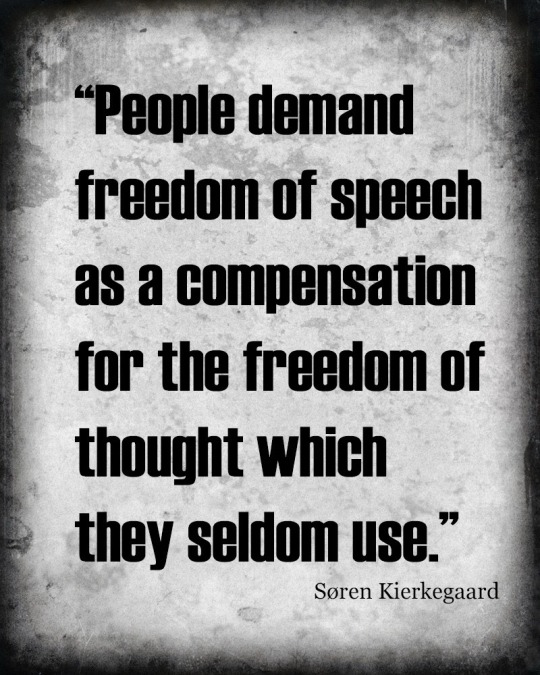#Freedom of Thought
Text
"What the herd hates most is the one
who thinks differently;
It's not so much the opinion itself,
but the boldness of wanting to think for yourself - an ability of which they themselves are not capable."
Arthur Schopenhauer.
#quote of the day#quote of today#thought of the day#thought of today#arthur schopenhauer#be yourself#think#go against the flow#dare to think#freedom#free spirit#free thinking#freedom of thought#opinions#sapere aude#thoughts#boldness#courage#want#think for yourself#use your head
210 notes
·
View notes
Text
New unclassified documents show Spain's espionage against Catalan independentists and how Spain's government, police and media worked together to publish fake information to attack Catalan independentists for years
For the last two months, there situation with the political espionage against Catalans, false accusations of all kinds of things against pro-independence politicians and activists, as well as right-wing demonstrations with Spanish supremacist hate speech, Spanish right-wing (though not only) politicians saying once again that Catalans are terrorist to gain votes, etc. have been escalating once again.
I had not made any post about all of that because I am simply too tired of the same thing happening over and over again and the same discussions happening all the time. This blog would be boringly repetitive if I commented on all the cases of diffamations, fear-mongering about inexistent supposed Catalan terrorists, the negotiations for a fake amnesty written so that they can keep as many people in jail as possible, and every new attack against Catalan people's right to use the Catalan language in the Catalan-speaking territories. It's the same old same old that doesn't stop happening in Spain. But I will give an update about what has been proven lately (and which had been known for a long time, but now can't be denied).
It has been known for a long time that the Spanish military intelligence service (CNI), with permission from the Spanish Supreme Court, has been using the Israeli espionage programme Pegasus to illegally spy on dozens of Catalan pro-independence journalists, activists, lawyers, politicians, and their relatives and friends for years. This goes against the human rights of the people who had their personal communications spied on and also against all the independence movement, because nobody is safe and everyone is susceptible of being spied on only for their political ideas.
Now, some of the official documents of the CNI have been declassified, so we know for sure that this espionage was happening, but other documents have not yet been declassified. Catalan politicians are asking the CNI to release the rest of these documents. The answer has been that they will not declassify them because it would "generate a risk and a grave threat for the life and integrity of the sources and collaborators of the CNI". Taking into account how in the last few years there has been many cases of infiltrated Spanish police in the Catalan social movements, including police who were infiltrated and entering long-term romantic relationships with Catalan activists (mostly Catalan women but some men too) and having sexual relations with others while lying to them about their identity, this statement can be understood to accept that there are many more people infiltrated in the movement.
But what have we seen in the documents that were released? That, as expected, the Spanish Government and Police between 2012 and 2016 used fake proof as excuses to spy on Catalans and tarnish their reputation on the press. As it has been released, the Spanish police compiled fake events with made-up proofs about Catalan independentist politicians, then they sent these fake news to the Minister of Interior of the Spanish Government, Jorge Fernández Díaz, who sent them to the Spanish media to be published as manufactured scandals on the front pages. This way, the Spanish media has spent years publishing fake information with the purpose of attacking the reputation and spreading fake ideas about Catalan independentists, including accusing many innocents of corruption, tax evasion, and personal family problems. All of these false accusations were widely talked about in Spanish media and became huge scandals, but when they were proven to be fake, the same media that published it would not include the news that these people had been declared innocents. Other ministers of the Spanish government like María Dolores de Cospedal and the president of Spain Mariano Rajoy were aware of it, and other ministries contributed to sending cherry-picked or false information to the Ministry of Interior for this scheme. All of this, of course, was paid for with public money coming from our taxes.
Nobody is surprised. This is just another day in Spain. The current Spanish Government has continued the espionage with Pegasus.
#actualitat#catalunya#catalonia#spain#european union#espionage#freedom of thought#human rights#minorities#catalan#independence#national minorities#minority rights#coses de la terra#catalan independence
69 notes
·
View notes
Text
The Power and Purpose of Strikes
Simone Weil, the philosopher/anarchist/mystic, describing an ideal political future for France after WW2, lamented that trade unions have become primarily concerned with wages. This might seem strange to us now, when even this activity is so contested by conservatives, but Weil saw it as playing too much into the capitalist spirit.
She saw this as just one of trade unions’, and the worst of the lot, because it encourages workers to think about personal monetary gain rather than justice, solidarity, and even their own needs beyond the material. It also risks the union becoming institutionalised through frequent direct interactions with established economic forces. Again, this will sound weird today, given how unions fighting for wages represent one of the few remaining avenues for working class justice, and yeah Weil was a Catholic with strong convictions about the importance of moralism, but I think fundamentally she had higher hopes than we can easily imagine today.
I think a lot of people sense the truth of what she says today - though unfortunately it’s usually conservatives, who would turn back on it immediately if they recognised what it was they were saying. You see it when they say “Why are train drivers striking? Why are writers striking? Why do they think they deserve more than nurses, or posties, or actors?” And of course, the answer is: “They should strike too!” (As some of them now are 🎉). But it’s true that the narrow focus on wages does foster a sort of competitive individualism which can undermine solidarity with other industries. This means that a more revolutionary conception of unions is needed, which is not what these critics have in mind, but it is what Simone Weil has in mind.
What Weil sees in trade unions is the potential for fostering community, freedom of intellectual and spiritual thought, and a degree of independence from capitalism, all of which amount to a greater degree of what she calls ‘rootedness’ - something involving confidence in truth, having material needs met, security in community, and relative freedom (among other things). She saw them as being able to foster solidarity to meet workers’ need for community, free them from the corrupting influence of monetary concerns, and fight for justice as a group. She also hoped that they could provide a space for freedom of thought, to avoid the fetishisation of community she saw in both the French and Russian revolutions.
Trade unions then should not merely concern themselves with accumulating resources, but also with accumulating time and freedom - with the expansion of what Henri Lefebvre called everyday life, the time in which we are free to do what we want and create new types of experiences. When we have enough of it, we can build our own institutions free from capitalist influence which can form the infrastructure for disruptive situations. This can be mutual aid groups, creative projects, intellectual and spiritual communities, and reimaginings of what it means to work, through permablitzing, learning crafts, and starting co-operatives.
The ideal version of this is the general strike. Walter Benjamin described the general strike as a form of divine violence, violence which acts instantaneously, bloodlessly, without coercion. Rather than sort of blackmailing capitalists, as most strikes do, the general strike is (ideally) a complete disengagement with the entire capitalist system. It asks nothing of it, and simply makes it irrelevant by building entirely new social relations in its place. This is not at all feasible with where we are at the moment, but I like to think that it can be used as an inspiration for incorporating more utopian ideas into our more limited actions, all of which are still so radical in this current climate.
#philosophy#sociology#social theory#anarchism#unions#trade unions#wga strike#sag strike#writers strike#ups strike#actors strike#train strikes#worker solidarity#solidarity#freedom#freedom of thought#intellectual freedom#communism#simone weil#walter benjamin#henri lefebvre#mutual aid#situationism
85 notes
·
View notes
Photo

People are afraid of attacking any expression of faith because it's seen as an attack on a 'community': 'communities' have to be respected, 'communities' mustn't have their feelings hurt. This is the exact opposite of a multi-cultural society, where everything can be discussed.
- Christopher Hitchens
I wonder how long it would have taken for Hitchens to have been cancelled if talked about so-called ‘marginalised’ communities today? He most likely not have cared a jot and would just keep speaking truth to power.
#hitchens#christopher hitchens#quote#freedom of speech#freedom of thought#woke#anti-woke#communities#free speech#society#culture#icon
54 notes
·
View notes
Text

"The moment you declare a set of ideas to be immune from criticism, satire, derision, contempt, [your] freedom of thought becomes impossible."
-- Salman Rushdie
September 30 is International Blasphemy Day.
#Salman Rushdie#Blasphemy Day#International Blasphemy Day#blasphemy#blasphemy laws#criticism of ideas#criticism of religion#mockery of religion#mockery#freedom of thought#religion#religion is a mental illness
37 notes
·
View notes
Text
“It’s about internalizing correct thought. Orwell understood very well the relationship between language and thought and how control of the former permits control of the latter: “[If] thought corrupts language, language can also corrupt thought.”
He devoted much of “1984” to exploring how the exercise of power over what may be said makes it easier to enjoy dominion over what can be thought, over how individuals understand themselves and their place in society. “Don’t you see,” says Syme, a lexicographer at the Ministry of Truth, “that the whole aim of Newspeak is to narrow the range of thought? In the end, we shall make thoughtcrime literally impossible because there will be no words in which to express it.”
The real-world version of that fictional effort to overhaul man’s inner life through controlling the language he is allowed to use in society is expressed more softly, though no less sinisterly. “New language… can become a useful tool for changing how people deal with each other,” say the Symes of today.
Allowing the subjective beliefs of people in the present to override the objective recording of events in the past would be extraordinary – a testament to the extent to which political correctness had overpowered reality entirely.
We now know the price of not speaking back, of letting others instruct us on what we may utter and how we must think. We now know the cost of allowing incursions into our inner lives. Man must be “master of his own thoughts,” said Spinoza. He must never be “compelled to speak only according to the diktats of the supreme power.” That is the first task of the heretic, then: to resist compulsion. To speak as he sees. To never fear to express the truth.”
———
Brendan O’Neill 𝘈 𝘏𝘦𝘳𝘦𝘵𝘪𝘤'𝘴 𝘔𝘢𝘯𝘪𝘧𝘦𝘴𝘵𝘰: 𝘌𝘴𝘴𝘢𝘺𝘴 𝘰𝘯 𝘵𝘩𝘦 𝘜𝘯𝘴𝘢𝘺𝘢𝘣𝘭𝘦
#books#the new inquisition#thoughtcrime#Orwellian#orwell 1984#thought police#totalitarianism#cultural imperialism#secular puritanism#state religion#freedom of thought#freedom#de evolution#regressive ideology#social confusion#Brendan O’Neill#heresy#language#control#social engineering
28 notes
·
View notes
Text
People demand freedom of speech as a compensation for the freedom of thought which they seldom use.”
Søren Kierkegaard
8 notes
·
View notes
Photo
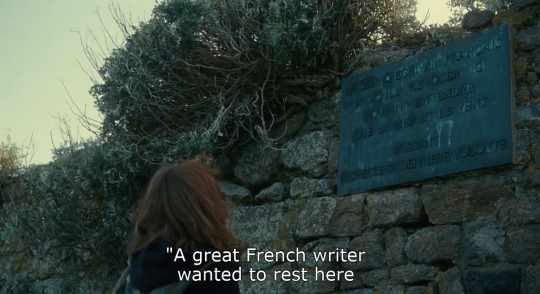
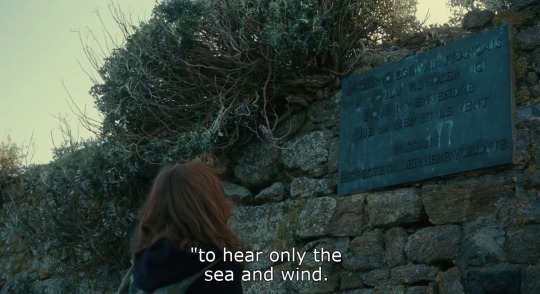

L'avenir [Things to Come] (Mia Hansen-Løve - 2016)
#L'avenir#Things to Come#Mia Hansen-Løve#André Marcon#Isabelle Huppert#Roman Kolinka#Édith Scob#independence#European cinema#freedom of thought#teachers#happiness#philosophy professors#2010s movies#European society#life#Le cose che verranno#midlife crisis#family#women#books#French countryside#Paris#France#drama film#relationship#cinema fran��ais#poets#poetry#intellectuals
49 notes
·
View notes
Text

4 notes
·
View notes
Text
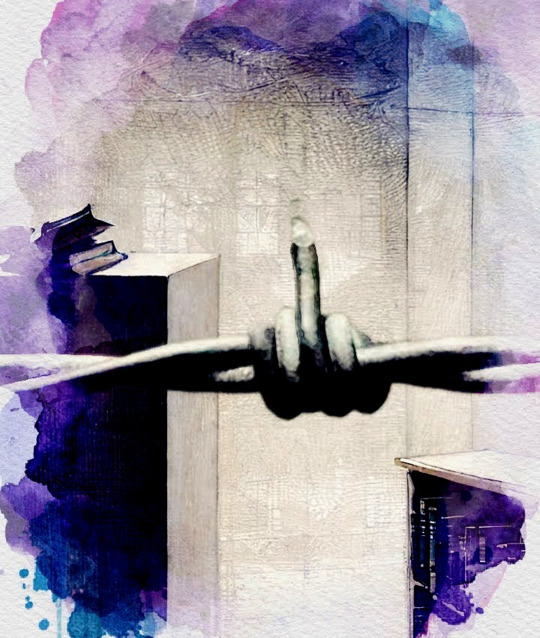
On Censorship (for all those who resist) ...
"Libraries should be open for all.
Except the Censor."
John F. Kennedy.
#thought of the day#thought of today#john f. kennedy#libraries#open library#freedom of thought#crime think#thought crime#books#books books books#censor#censorship#fight censorship#stop censorship#dare to read#dare to think#sapere aude#what matters
180 notes
·
View notes
Text
Fact checkers cancel
comments, opinions and views,
rapid censoring
to avoid an indulgent
populace of free-thinkers.
.
D W Eldred
9 notes
·
View notes
Text
The only reason why you want to censor other people is that you're lying and want to prevent getting caught
2 notes
·
View notes
Text
"People demand freedom of speech as a compensation for the freedom of thought which they seldom use."
~ Søren Kierkegaard
57 notes
·
View notes
Text

youtube
Why We Should Abolish Hate Speech Laws - Andrew Doyle
Since when did it become the business of the state to audit our emotions?
In effect, this is precisely what's happening by means of the various "hate speech" laws that have been implemented throughout Europe in recent years. In Ireland, the imminent "Criminal Justice" bill would represent one of the most draconian forms of hate speech legislation yet produced.
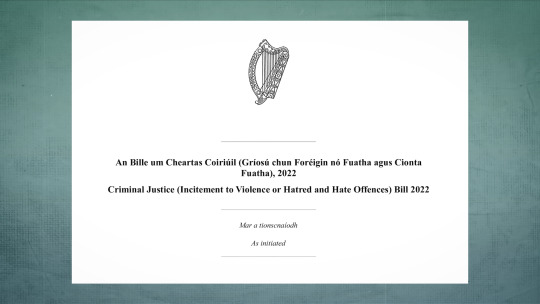
And how is hatred defined in the bill? Well, the following is a direct quotation: "'hatred' means hatred against a person or a group of persons in the state or elsewhere on account of their protected characteristics or any one of those characteristics."
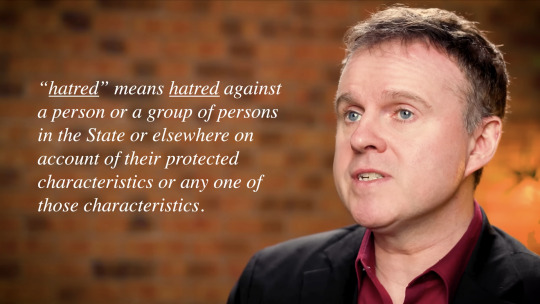
So, hatred means hatred. Glad we cleared that up. This kind of circular definition is what we've come to expect from legislators when it comes to this most nebulous of concepts. In his book "Censored," Paul Coleman helpfully includes all of the existing legislation on hatred from across Europe. And in doing so, he reveals that no two governments are able to agree on its meaning.
In 2012, the European Court of Human Rights concluded that there "is no universally accepted definition of the expression 'hate speech'" and a manual published by UNESCO in 2015 accepted that "the possibility of reaching a universally shared definition seems unlikely."


When it comes to the statute books, one would have thought that precision and detail would be of paramount importance. After all we've seen how vaguely worded legislation is wide open to exploitation. Consider, for instance, how trans rights activists are now claiming that the reference to sex in the "Equality Act 2010" connotes a sense of "gender identity" rather than, you know, the biological designations of male and female.
If the state is empowered to imprison its citizens on the basis of "hatred," surely we need to know what that means. Hatred, like any other emotion, cannot be legislated out of existence. Will we be seeing laws against envious speech on the statute books? And what about codes against wrath or pride? If the government were to prohibit narcissistic speech, most of the flag waving pronoun-declaring gender ideologues would have to be incarcerated. And while this would doubtless create a much more sane and serene society, it would also involve the obliteration of our fundamental values.
As for "hate crimes," there is no need for mind reading in order to determine the appropriate punishment. If I'm physically assaulted, it makes little difference to me if the assailant was motivated by homophobia. I would prefer the sentence to reflect the crime itself, not to be moderated according to speculations about the perpetrator's private thoughts. The state should have absolutely no license to probe inside our heads, any more than employers should insist on compulsory unconscious bias training.
In a free society we are entitled to think and feel as we see fit, and so long as that does not interfere with the liberties of others, that includes the right to hate. But even if one were to accept the premise that the state must crack down on hateful thoughts, which I most assuredly do not, "hate speech" legislation is holy ineffective.
Censorship of hateful ideas does not cause them to disappear. It drives them underground where they can fester unchallenged. Moreover, "hate speech" laws are easily weaponized by activists seeking to silence their political opponents. For example, in the UK, we have seen people arrested for "misgendering," that is to say, for accurately identifying the sex of another person.
The journalist Caroline Farrow was investigated by police for 6 months after an appearance on Good Morning Britain. According to a complainant, Farrow had referred to another contributor's female-identifying child with a male pronoun during a conversation that took place off-air. And although such instances have not led to convictions, we all know that the process is the punishment.
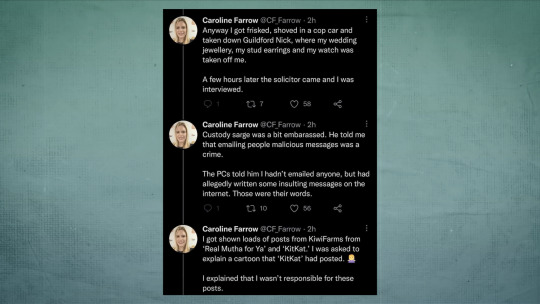
As one who has received my fair share of abuse online, I understand that free speech has its downsides. But I choose to ignore those of the obnoxious and hateful ilk, rather than call for them to be censored. The price we pay for living in a free society is that unpleasant people are going to say unpleasant things. But their right to do so is precisely the same right that allows us to counter them. If we attempt to silence even our most abusive critics, we are essentially surrendering our principles at their behest.
No doubt the trans-identifying individual who was described as a "faggot with tits" in a recent case in Spain didn't relish the experience. But it should concern us all that the state has intervened and sentenced the woman who posted the offending words to 6 months in in prison, suspended on condition of the payment of a €3,850 fine. In addition, she's been banned from employment in teaching and sports for three and a half years. This is the very definition of authoritarian overreach.
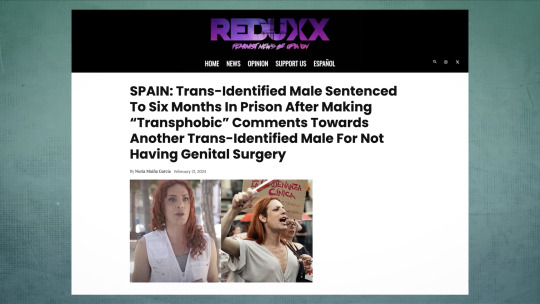
[ *Ironic correction - Both the complainant and the offender were "trans-identified" males. ]
Those who are skeptical of gender identity ideology are particularly susceptible to the misapplication of hate speech laws and there is no way of knowing which other beliefs will eventually be criminalized. Once a state has outlawed "hatred" and failed to define it, the law becomes a cudgel to beat anyone who holds heterodox points of view. Who is to say that a future government might not deem it "hateful" to criticize its policies? What starts with the chilling of free speech ends with the criminalization of dissent.
A new law in Canada, for instance, Bill C63 empowers the state to imprison a citizen for life for "advocating genocide." But of course, activists and even politicians have insisted that claiming biological sex is real and immutable is a form of "trans genocide." On the hands of authoritarians these words are very slippery. They can mean whatever they want them to mean.
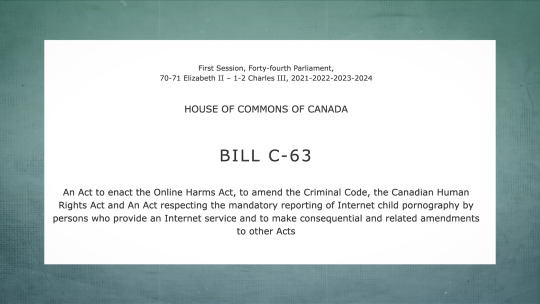
And that's why we should be so worried about free speech in Ireland. Last year the Irish Green Party senator Pauline O'Reilly made no effort to disguise the authoritarian nature of the new bill.
"That's exactly what we're doing here, is we are restricting freedom. But we're doing it for the common good."

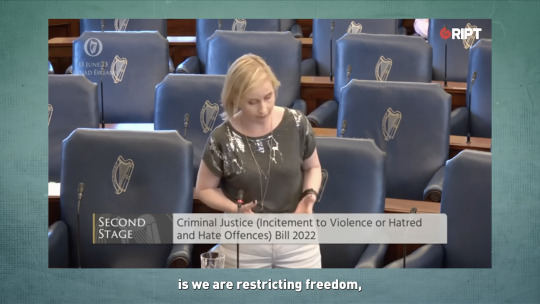

Hasn't every tyrant in history made an identical claim? In her speech, O'Reilly invoked the notion of safety to justify state censorship. "If your views on other people's identities go to make their lives unsafe insecure and cause them such deep discomfort that they cannot live in peace," she said, "then I believe it is our job as legislators to restrict those freedoms."

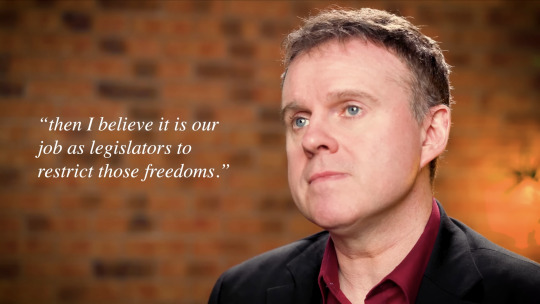
Well. it's a common tactic of activists to claim that certain opinions make them feel "unsafe" as a means to provoke a censorial response either from employers or from the state. But this is linguistic sleight of hand and the strategy has been remarkably effective.
The Irish "hate speech" bill goes further than most of its equivalents in European countries. It will give the state the right to prosecute those who cause offense under the catchall of "inciting hatred." And those found guilty could face up to 5 years in prison. Even more worryingly, a citizen can be jailed for 2 years simply if they "prepare or possess" material that could potentially incite hatred. So, if you have a gender-critical meme on your iPhone, that could be sufficient to see you in jail.
In the UK, "hate speech" laws exist in the form of the "Public Order Act 1986" and the "Communications Act 2003." 3,000 people are arrested each year in the UK for comments posted online that have been deemed offensive. And in some cases have even been imprisoned for jokes.
If we're going to tackle this problem, we might start by repealing section 127 of the Communications Act, which criminalizes online speech that can be deemed "grossly offensive." Of course, no attempt is ever made to define "grossly offensive" in the legislation, so anyone could be vulnerable.
In Scotland, the situation is even graver. When First Minister Hamza Yusuf was Justice Secretary, he was instrumental in the passing of the Hate Crime and Public Order Act, and disturbingly, these new laws can see citizens prosecuted for words that they have uttered in the privacy of their own homes. I'm reminded of a speech by William Pitt the Elder, delivered in the House of Commons in March 1763.
"The poorest man may in his cottage bid defiance to all the forces of the Crown. It may be frail, its roof may shake, the wind may blow through it, the storm may enter, the rain may enter, but the King of England cannot enter. All his force dares not cross the threshold of the ruined tenement."

Evidently, these sentiments would not be echoed by the SNP. Given that hatred and offense are entirely subjective concepts, we should be resisting any attempt to codify in law restrictions against them. No two figures of authority will interpret these terms in the same way. And as human beings with frailties and biases, they will doubtless be tempted to wield such laws against their detractors.
If the state is willing to dispense with our right to free expression, there can be no guarantees for any of us. "Hate speech" laws are an affront to human liberty. It's time to ditch them for good.
#Andrew Doyle#Triggernometry#hate speech#hate speech laws#free speech#freedom of speech#hate crimes#thought crime#censorship#freedom of thought#religion is a mental illness
8 notes
·
View notes
Text
"I have one consistency, which is being against the totalitarian - on the left and on the right. The totalitarian, to me, is the enemy; the one that's absolute, the one that wants control over the inside of your head, not just your actions and your taxes.”

\\Christopher Hitchens
#totalitarianism#freedom of thought#freedom of conscience#christopher hitchens#Hitchens#control I’m here#control
41 notes
·
View notes
